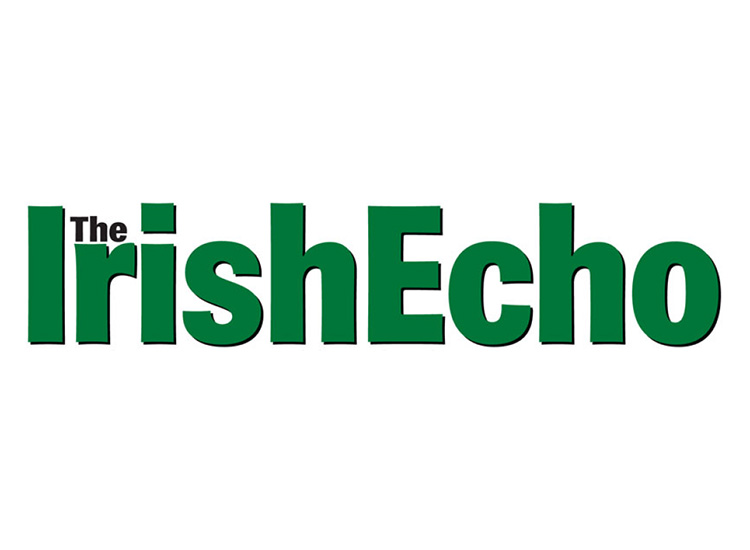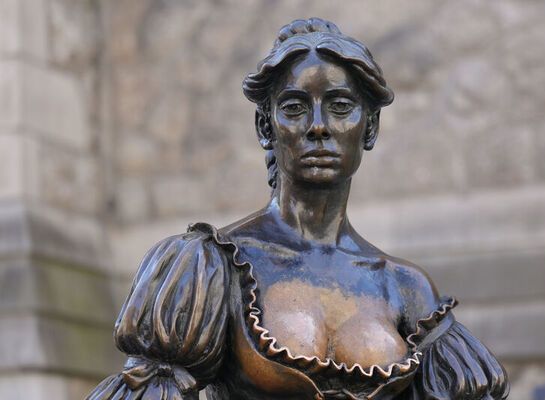So, if the team's unbeaten run has now been extended to a record 12 games, Ireland strutted only for a while, then stumbled. They scored two tries by Jamie Heaslip and Tomas O'Leary before the changeover and led by 20 points after little more than half an hour, and you sensed a crowd of 77,000 was tantalised by the possibility of even better things to come.
Following injuries to Ronan O'Gara, who had a 100 per cent record from his six kicks, and to Paul O'Connell, the team might have had a patchwork look about it coming up to full-time, however, from a position where 50 points had looked on the cards, the second half was still a major disappointment.
So what went wrong after an opening period which contained several blinding flashes of attacking play? Instead of going for the jugular, the Irish completely lost the momentum they had built up.
As the forward effort began to stall and as only David Wallace and Heaslip provided any real dynamism, it was as if O'Gara was suddenly unsure whether to attack from the hand or pin the Italians back with his kicking game. In the end, Ireland fell between two stools.
"I wouldn't be delirious about the performance, but I wouldn't knock it either," said coach, Declan Kidney. "We're not trying to fool people. Everywhere we need to improve, we're under no illusions about that."
Against widespread expectation that it might take the home side the best part of an hour to break free, the lead was 10-0 after less than 15 minutes. Heaslip's try ended up as an easy run-in following some quick hands by Gordon D'Arcy, Brian O'Driscoll and Wallace, but O'Gara's superb cut-out pass to Andrew Trimble on halfway had been the genesis of the score. O'Gara, who had stroked over an early penalty to pass 500 championship points, landed the conversion for good measure.
With Ireland coming on strong, Rob Kearney would have scored if O'Gara had got the pace of his pass right, but soon the lead was up to 20 when Italy overthrew a line-out in the red zone. Leo Cullen rumbled forward and O'Leary had little problem dotting down from close range.
Despite the evident gulf in class between the sides, Declan Kidney and his brains trust would have been more than happy with a 23-3 half-time scoreline, but they hadn't gambled on Kearney, who had a very poor game, gifting the visitors the softest of tries. Occasionally guilty of rugby hubris, the full-back tried a risky clearance kick from close to his own line which Kaine Robertson all too predictably blocked down.
You felt that the green jerseys would come out seeking atonement, but instead of quenching the remnants of Italy's fire, what followed was 20 minutes of torpor, probably the most numbing period of non-rugby since Kidney took charge. There were mitigating factors - the Italians' policy of deliberate offside in broken play, Romain Poite's frustrating refereeing, and the fact that by the end, Heaslip was the only forward on the pitch who had started last season's Grand Slam match, but against the Azzurri who were woefully short on both quality and ambition, it just wasn't good enough.
The last time Italy were in Dublin two years ago, the winning margin was only 16-11. This was certainly more emphatic, but as a marker for the game against France in Paris on Saturday, that dreary second half hardly registered. Before the changeover, we thought we'd seen just a sign of the swagger that might be bringing Ireland to a new level, however, by the end, it had gone again.
In last weekend's other Six Nations games, France comfortably beat Scotland by 18-9 in Edinburgh, while England finished strongly to get the better of Wales by 30-17 in London.
Dubs get rare NFL win vs. Kingdom
The sort of GAA successes that count hardly ever materialise as early as February, however, Dublin still left Killarney last weekend with a notch on their belt. Their 1-12 to 1-10 victory over Kerry was a first in the National Football League since 1982 and as a stepping stone for the rest of the campaign, it was significant.
Although manager Pat Gilroy predictably downplayed the result, this was a promising performance by the winners whose margin should have been greater than just two points. A goal in the closing stages by Barry John Walsh cut the deficit to a point and Kerry were on course to snatch a draw when an attacking move broke down and Michael McAuley ran clear to fist the decisive score.
Eamonn Fennell who hit three from play impressed for Dublin while Paul Flynn added a first half goal. As for last year's All Ireland champions, Paul O'Connor with five points and Paul Galvin, who struck four, dominated the scoring.
Elsewhere in Division One, Derry got their bid to reach a third successive League final off to the perfect start with a 1-18 to 1-12 win over Ulster rivals Tyrone at Celtic Park. Even with many new faces in the line-up, Derry were in control for much of the contest with James Kielt landing six frees and Raymond Wilkinson helping himself to 1-2.
A disappointing Tyrone trailed by nine points going into the final minutes, but a late goal from Colm Cavanagh, followed by scores from Martin Penrose and Eoin McCusker briefly closed the gap.
New Galway manager, Joe Kernan, clearly has some serious work to do with his players in the wake of Mayo's comprehensive 2-14 to 1-10 victory in Castlebar. Galway were dreadful during the first half after which they trailed by six points and not much better in the second when Mayo lost momentum following captain Trevor Mortimer's sending off for a high challenge on Gareth Bradshaw.
"Outmuscled and outgunned all over the pitch," said Kernan. "Probably only three or four players stood up out there which is disappointing. If you wanted a reality check, well I'm sure the Galway people will settle down and say there's a lot of work to do."
Enda Varley and Mortimer scored the winners' goals and Mark Ronaldson contributed four frees, while Michael Meehan's 1-3 after his arrival at half-time kept Galway just about in touch.
Cork edged out Monaghan by 3-13 to 2-12 in a thriller at Scotstown where three late points by the visitors proved decisive. Paudie Kissane reduced the margin to one before Paul Kerrigan brought the teams level, and then with a minute of normal time remaining, substitute John Hayes struck to give Cork the verdict.
Kerrigan, with two, and Patrick Kelly scored the Cork goals while Tommie Freeman and Darren Hughes had 1-2 apiece for Monaghan.
In Division Two, Kildare went into their opening game against Down in Newbridge as favorites only to find themselves on the end of a 1-16 to 0-8 trouncing. The second half dismissals of both Gary White and Daryl Flynn didn't help, but even by then Down were well on the way to victory.
"I talked about discipline, I'm sick talking about it and we lost two players again," said Kildare manager, Kieran McGeeney. "I must be speaking French before games because they're definitely not listening."
Paul McComiskey with 1-4 and midfielder Ambrose Rodgers, with 0-3 from play, provided Down, who were promoted from the second division last season, with a distinct scoring edge.
Goals in either half by Stephen Bray and Jamie Queeney gave Meath the advantage as they got the better of Armagh by the slenderest of margins in Navan. It finished 2-8 to 0-13 and if the verdict could easily have gone either way, Meath probably just about deserved it despite periods of Armagh dominance.
David Bray added 0-3 for the winners, while Steven McDonnell with 0-6, including three frees, kept Armagh well in the hunt although the Ulster county missed the additional scoring power of Ronan Clarke.
Donegal recovered from a five-point deficit to defeat Westmeath by 1-13 to 0-9 in Mullingar where Kevin Cassidy's second-half goal turned out to be crucial. Westmeath set a hot pace and quickly raced those five points clear before Donegal awoke from their slumber. They only trailed by one at the break, and then Cassidy thunderous strike from 25 meters set them on their way.
Laois got the win by 1-13 to 1-11 over Tipperary in Portlaoise, however, they failed to build on a 10-point interval lead as Tipp battled back with a Conor Sweeney goal to level matters in the closing stages. Laois then got their act together again, and scores from Donal Miller and Brendan Quigley in injury time did the trick.








